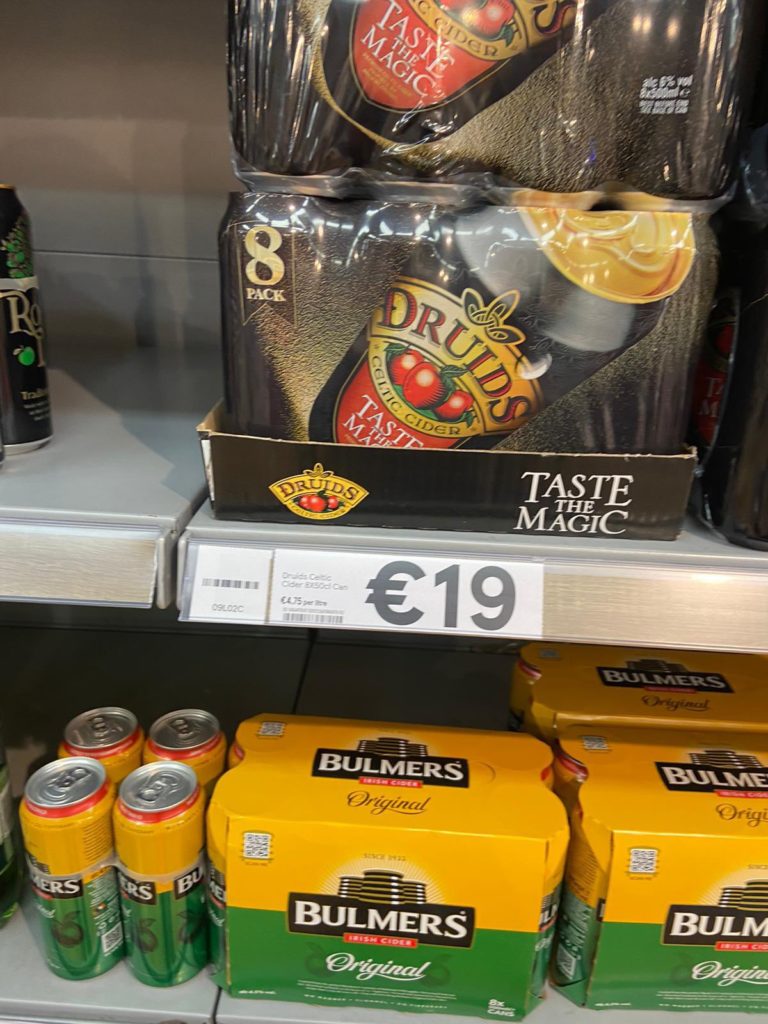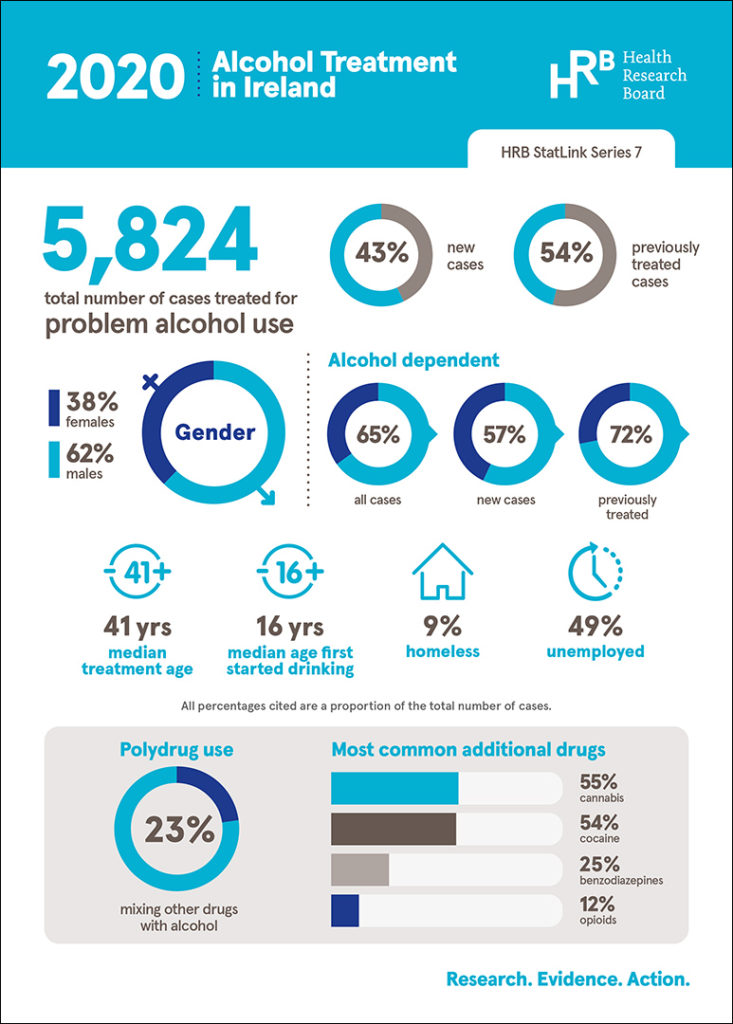Who actually benefits from Minimum Unit Pricing?
Words: Eva O’Beirne
As of January 2022, Irish people will now have to work longer than any other country in western Europe to be able to afford alcohol.
Its very easy to sit back and rage at the concept of minimum unit pricing. Looking at the country around us that’s crippled by mental health issues and sky-high housing costs, crying out for better healthcare….why wouldn’t you get angry at the concept of politicians who earn over 100 grand per year telling us that pricey booze is what’s best?
Ireland’s national minimum wage of 10.50 euro per hour means one can will now cost ten minutes of your time. But is there a genuine reasoning behind MUP? Are we simply too caught up in seeing the prices go up to realise how prevalent alcohol addiction is in Ireland? Will it actually cause drug use to increase or will it protect addicts and their families? Will it shut down our breweries or bust our businesses?

Obviously, those questions can’t be answered in an Irish context right now. MUP has only been in force for less than two weeks. But we can look to two countries that are less than 400 miles away to see what our population will experience under an eerily prohibitionist policy.
Scotland
In May 2018, Scotland became the first country in the world to introduce minimum unit pricing on alcohol. Set at 50p per unit (60 cent), the policy was specifically targeted at low-cost, high-strength beverages which were seen as a source of problem drinking. The biggest observation from MUP being implemented was the fall of alcohol sales by 7.6 per cent. No significant statistical changes in alcohol-related crime, disorder and public nuisance offences were recorded either.
But the most challenging narrative to discuss is whether MUP has caused drug use to increase in Scotland. It was reported by the BBC that Scotland reached a new record level of drug related deaths this year, the highest in the EU. The statistics revealed that those living in the most deprived parts of the country were 18 times more likely to have a drug-related death than those in the least deprived.
Is this a causation or a correlation? Not even the experts are sure. A 2021 study published in the journal Public Health Research collected data from alcohol-related attendances to emergency departments and sexual health clinics (SHCs), as well as focus groups made up of heavy drinkers and young people. Researchers found that there was “no evidence of substitution from alcohol consumption to other drugs” after the introduction of MUP.
In contrast, a 2020 Public Health Scotland study evaluated the impact of of MUP on parental substance misuse and found that when it came raising the price of alcohol, participants did see an increase in drug use in family and friends:
“Participants could not identify a clear link between MUP and the use of other drugs, but there were some concerns expressed that MUP might exacerbate existing problems for individuals within the context of poverty, welfare changes and what people can afford to buy, and their desire to use substances to cope with/escape from their lives”
Some participants suggested that an increase in alcohol prices “had the potential” to impact on patterns of drug use by some individuals who were already using drugs.
The number of drink-related deaths in Scotland also increased by 17 per cent in 2020, despite MUP. Four years down the line and the Scottish system doesn’t appear to be doing any better in terms of keeping the nation healthy. But why should this matter to us?
Sure we’re two different countries but we suffer very similarly when it comes to alcohol and drug issues. 1,094 alcohol-related deaths were recorded in 2017, and Ireland is currently three times higher than the European average for drug related deaths.
Again, I’ll put up my hands and acknowledge that there is no explicit evidence to suggest that minimum pricing leads to increased drug use, but Ireland’s growing polydrug culture is concerning enough. Its hard to imagine the same policies that failed to demonstrate significant progress in Scotland working in Ireland, especially considering the state of the HSE in comparison to the NHS.
But what about the other one? The Wales fella? How are they getting on with the MUP?
Wales
Despite MUP being implemented in March of that year, Wales reported it’s highest alcohol-related deaths for twenty years for 2020. A similar rise has been seen in drug-related deaths. But even if the two aren’t related, its evident that there aren’t enough supports in place and that MUP can’t be a stand-alone policy.
We must realise the impact the pandemic has had on this policy and perhaps that is why these substance-related deaths are the highest they’ve ever been in Scotland and Wales. At the same time, we need to realise that MUP is not a solution to addiction. People will find a way to abuse alcohol, no matter the price.

So will MUP cause us to visit the six counties more often or haul home suitcases of French wine? Its a possibility but not a certainty. Heavy drinkers are less price elastic and will continue to drink often. We know that this policy is specifically targeted at cheap alcohol, not the good stuff in the back of the cabinet. A 5 or 10 euro price minimum on alcohol would definitely curb the total population’s consumption, but of course that is not acceptable for the Dáil.
One wonders why rent caps are “unconstitutional” in comparison. Sufficient housing is seemingly not as important than an inconsistent health policy. Alcoholism and binge-drinking is no doubt a huge issue in this country, but instead of tackling it with education and awareness, the Government has placed a blanket policy over the problem.
I’d like to remind you all that MUP is not a tax or a fee, but rather a pricing policy that does not fund the healing of Ireland’s population but rather punishes the poor for being poor. It is a cold shoulder to those who experience addiction and those who have turned to alcohol amidst pandemic-related anxiety.
After our tax-approach to cigarettes, it’s surprising we haven’t taken the same route with booze. A tax would be much more effective to address alcohol consumption, and would help the state fund its health services instead of padding the pockets of retailers and private companies.
The small retailers are now on the same playing field as the big boys, and who knows? Maybe alcohol retailers will employ more staff with higher wages as a result of the additional revenue. But it is simply too speculative of a policy. The government appear to be floundering when it comes to public health, and choosing MUP over directly funding services to support those suffering from mental issues or addiction seems like two steps backwards and no steps forward.
Elsewhere on District: Where to Shop this Veganuary





